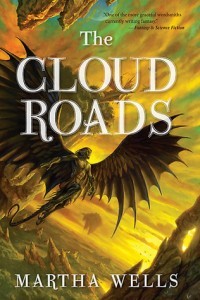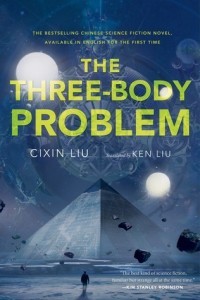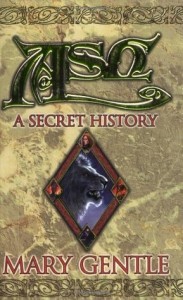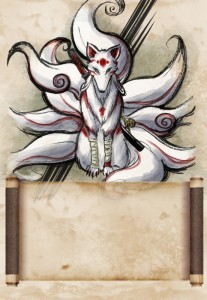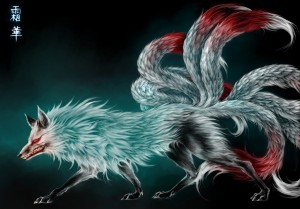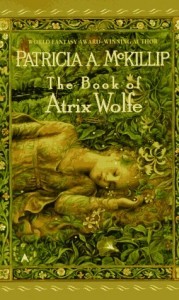Rachel Neumeier's Blog, page 328
August 25, 2015
Male friendships in fiction
So, a few days ago . . . weeks, maybe, I lose track . . . I happened across this post by Rupert Wallis on friendships between male characters –in kid’s stories,mainly, though there are also some suggestions for older readers.
I’d only read one of these works myself: Roald Dahl’s Danny, Champion of the World, which I loved, for all the reasons given in Wallis’s post. That one is a dad-son relationship, really well handled. It can be hard to find central parent-child relationships in MG and YA, I think, largely because if you’re going to give the kid the job of saving the day, you have to have some reason the adults can’t handle it, so removing parents completely or fading them into the background is one popular method of seeing to it that the kid stays front-and-center.
It’s interesting to me that Wallis wrote this post, because his newest book — All Sorts of Possible, which is a great title — seems to set up a situation where instead of a central relationship between father and son, the father is apparently removed as an active character. I know this because I looked at the summary on Amazon. I looked on Amazon because this book has the worst ever summary on Goodreads (it has essentially no summary at all so you can’t begin to guess even what genre the book is.) Here’s what Amazon says:
When the sinkhole opened there was no time to brake or turn the wheel and the old green Land Rover was snatched off the dirt road over the smoking rim. The moment that a sinkhole swallows the car Daniel and his father are travelling in, everything changes: suddenly Daniel is the ‘miracle boy’ who escaped unharmed and his father is gone, trapped in a coma with no sign of recovery. Everyone wants to know the secret to Daniel’s escape, including a Mason, a gangster who believes that Daniel is special and can help him secure the biggest score of his career…whatever it takes…But is Daniel really special or just lucky? And can he use whatever other’s think is within him to help his father? A lyrical and atmospheric novel from the phenomenally talented Rupert Wallis about love, loss and learning to accept the world for what it is, not what it could be. Perfect for fans of Patrick Ness and David Almond.
I’m not at all sure this sounds like something I would like; also, the summary is perhaps not as well written as it could be, because honestly, people do survive all kinds of accidents and I’m not sure why Daniel’s survival of this particular accident was so striking.
Also, all this immediately makes me think about exceptions where the parent-kid relationship is particularly well done. Well, maybe later. Right now I want to extend the “male friendships” idea and extend that into SFF, which Wallis did not. I was trying to stick more to unrelated guys, not brothers or whatever. Here are some of the titles that come to mind when I think of particularly well-done male friendships in SFF, in the order I thought of them:
1. Shaun David Hutchinson’s The Deathday Letter , with a teenage boy protagonist sorting out his life when he knows he has 24 hours to live.
2. Richard Adam’s Watership Down, with Hazel and Bigwig and Fiver and the rest. Really hard to beat.
3. Sarah Rees Brennen’s The Demon’s Lexicon series. I’m not thinking of Alan and Nick here, although their relationship is central and extremely well done. I’m trying to think of friends rather than brothers, so in this case I’m pointing out Nick’s relationship with Jamie, which is developed wonderfully in the trilogy.
4. CJC’s Fortress in the Eye of Time series. I’m thinking of Cefwyn and Tristen, of course; also Cefwyn and his brother.
5. Scott Lynch’s The Lies of Locke Lamora series offers one of the most central male friendships I can think of in SFF, between Locke and Jean, of course.
6. Gillian Bradshaw’s Cleopatra’s Heir — this one is the first one I thought of when I stopped thinking about brothers and starting thinking about the father-son relationship. Of course they’re not actually related — that would kind of destroy the entire premise of the book — but the relationship between Caesarion and Ani is very much a son-father type of relationship, as well as absolutely central to the story.
7. And one more, also unrelated but very much a son-father relationship — I’m a sucker for that trope, apparently — Moon and Stone from Martha Wells’ Raksura series. As far as I’m concerned, one of the best scenes in the whole series is when Stone arrives at Opal Night. Also, Wells has been blessed with the best of all possible covers for her Raksura series:
You all do know that we’ve got two more Raksura books on the way, right?

Big Hugo Winner: Politics
No award won a bunch of stuff; I expect you’ve all heard about that by now. Not a surprise, not a surprise. Not a foregone conclusion, either. I’m confident no one really knew what this year was going to look like till the votes were actually counted.
I read a ton of posts and comment threads during the month or so leading up to the actual awards — I mean, I followed File770 and read a whole bunch of the linked posts and their various comment threads, Scalzi, GRRM, Vox Day, all of ’em. Thus I am a bit burned out on drama at this point, and no doubt that’s one reason I *particularly* appreciate Chaos Horizon for offering analysis of the votes without embedding it in a morass of emotional reaction, and if that sounds like what you’d like too, after the peculiar, tense, highly emotional Hugo phenomenon this year, then here it is: preliminary analysis of the voting. I rather think I will avoid all Hugo posts for the rest of the year other than the ones on Chaos Horizon, because, yeah, burned out.
Anyway! Three-Body Problem by Cixin Liu won Best Novel — I’m sure you all know that already.
Of course I’m disappointed that “Katherine Addison’s” The Goblin Emperor didn’t win because I *so* wanted it to, and it clearly would have, incidentally, without the Rabid Puppy voters. I mean, it lost by only about 200 votes. Well, at least a whole lot of people liked it, so that’s good. I notice on Goodreads that TGE has 1400 reviews and TBP has 1100, and they’re just about tied for ratings, so a lot of people clearly like both. Not the same people, I would be willing to bet.
Well, I’m glad TGE won the Locus first for the Fantasy category earlier this summer. That does make me feel a little better.
Now, I should add, although Three-Body Problem didn’t really work for me, I think it was a good choice to have on the ballot and I think it’s a worthy winner, too. Ambitious, wide-ranging, thought-provoking, it had a lot going for it and I see why a lot of people voted for it. I would have particularly been interested to see what happened with it if it had been up against Weir’s The Martian and Cambias’s A Darkling Sea as well as Ancillary Sword, maybe a couple of other SF titles that I am not thinking of off the top of my head — what I mean is, set TBP against other SF, remove the fantasy titles, and then what wins? Physics, nuts-and-bolts engineering, sociology; near-future or far-future; something more literary or something more space opery? Something that emphasizes characterization or something that honestly makes characterization a complete afterthought?
Wouldn’t that be interesting?
Actually, and I do not want to get into the name-calling and accusations and straw men and all that, but you know how rather frequently during the Hugo mess someone said something on the order of, “Start your own damn award then!” And I don’t necessarily think that’s a great idea, nor do I have much of a notion how anybody would get a new award off the ground (get ComicCon to run it, maybe, since isn’t that the biggest convention these days?), nor is this directly relevant to the Puppy controversy, but setting all that aside, I wouldn’t mind seeing an SF-only award — I say this as someone who reads a lot more fantasy than SF, btw. You know the Locus separates SF from F and I do think that’s a fine notion. Then we could all argue about whether a given work is actually SF or fantasy, which would be way less stressful than arguing about politics and conspiracies and hurling accusations of the worst possible motivations at everyone in sight.
Well, well, I doubt anybody will start a new award regardless. What I would like to see for the Hugos next year is a lot of very active readers plugging very different lists of recommended works. I expect we’ll actually see slates, probably more than one, and I expect the supporters of every slate will promote theirs as The Right Slate That Showcases The Right People and the others as Immoral Bloc Voting and it will all be violently dramatic again, alas. Incidentally, as far as I’m concerned, fan clubs that vote in lockstep without declaring publicly that they’re voting for a slate are still voting for a slate, and the single thing I want to see least is one author receiving (or accepting) more than *at most* two nominations.
By the way, I expect I will have works eligible next year for all four categories, and I would be more than happy to demonstrate that I *really mean this* about not accepting more than two nominations. Feel free to contribute to a Make Rachel Prove It voting campaign.

August 21, 2015
If you’re into alternate and secret history —
At Skiffy and Fanty, an intriguing review of a four-book series by Mary Gentle that I hadn’t heard of but that’s been out for some time:
In our world, the duchy of Burgundy, the Middle Kingdom, has had a fascinating, and often strange history. Wedged in the middle of Europe, from the Mediterranean and up toward the North Sea, parts of which are now France, Switzerland, Germany and Belgium, the Dukes of Burgundy have often been as powerful or more powerful than some of the full blown kingdoms they have dealt with. … By accidents and turns of fortune, Burgundy disappeared from our history in a rather sudden fashion.
That sudden disappearance of Burgundy from history is the historical seed for Ash: A Secret History by Mary Gentle.
I’m not sure I know enough about enough about real history to get the most out of this alternate history . . . in fact, I’m sure I don’t . . . but according to this review, “We are dropped into this 15th century that, even with the framing device of the book being an academic work, slowly reveals just how strange and wrong this 15th century is compared to ours. By the time the reader is fully into the first movement of the book, the fact that this 15th century is definitely not the one we remember becomes inescapable.” Hmm, this does sound intriguing.
The only book by Mary Gentle that I ever read was RATS AND GARGOYLES, and I guess I didn’t much care for it because it doesn’t seem to have stuck with me.
On the other hand, this ASH quadrilogy does sound like my kind of thing — here’s the Goodreads summary:
For the beautiful young woman Ash, life has always been arquebuses and artillery, swords and armour and the true horrors of hand-to-hand combat. War is her job. She has fought her way to the command of a mercenary company, and on her unlikely shoulders lies the destiny of a Europe threatened by the depredations of an Infidel army more terrible than any nightmare.
There are definitely tropes I like in this one, sounds like. Also, wouldn’t it be interesting to compare this work with Django Wexler’s THE THOUSAND NAMES?
Has anybody read this? Or other books by Mary Gentle? What did you think?

The two-body problem
Via @JonnyGeller on Twitter, a marriage proposal in the form of a formal physics article, such as you’d see in a peer-reviewed journal.
The study began on the 23rd of March, 05, outside a SciSoc BBQ at the Eastern A venue building, when the subject spontaneously appeared in a red coat and grey ‘Paddington bear’ hat and was similarly spontaneously introduced by a local social node. This meeting was under optimal conditions, as it happened to be the rainiest day of the year, and as it was later discovered, hydrometeors excite both subjects. This meeting would have been a fleeting interaction as so many two-body interactions are, but a high level of compatibility coupled with a high rate of interaction due to similar timetables resulted in a local resonance, and eventually a semi-bound state on the 23rd of May, 05.
Amusing and charming!
Here’s the link to the full-sized pdf if you’d like to actually read the (short, one page) paper.

Kitsune art
I find I agree with Mona: I like this one, where the tails fan out behind the fox, the best:
Although I would like this one —
— if it didn’t look so demonic. “Demonic” is not really how I think of kitsune…

August 20, 2015
Stepping into the future —
Yeah, pretty sure I saw that movie, so are you sure we want to go forward with this?
Atlas is a humanoid robot. Here’s a video of its performance as its creators test it in the woods outside.
Actually, the first robot in the video looks more like a llama, and isn’t so creepy, partly because it has a head.
There is also a jumping robot, designed more like a cheetah, it says. That one is headless. Ugh. Put a head on your robots, people. That way they can look at you properly when they say, “I’ll be back.”

This is kinda cool: board games get a lift from crowdsourcing
So, via Black Gate, I happened across a post on the lift crowdsourcing has given board games.
Albert Mach wants to help you lead a Viking clan. He wants you to compete for honor and treasure and the control of islands. He wants you to tame the wild dragon. And he wants the masses of the Internet to bankroll all of it.
That’s because he’s a board game designer.
Now, I’m not really into games, but some of the games — board games, some of them, but some are clearly card games — that have gotten funded through Kickstarter certainly have intriguing names. Exploding Kittens? Raised almost nine million dollars via Kickstarter? The next time someone says, “What’s in a name?” or “A rose by any other name” to me, I will think of exploding kittens. Because the name must have been the initial clickbait that made people look at it.
Anyway, just thought some of you might find this post interesting.

I’ve always particularly liked kitsune —
So this post at tor.com caught my eye: M.L. Brennan Talks Kitsune Science and Folklore
This post isn’t *really* about kitsune folklore — if you are interested, this post is better for that — but it’s still fun to read.
Author and AMA champ Django Wexler asked for three reasons why kitsune are better than werewolves, so of course Brennan complied:
Kitsune are travel-sized, and can easily be carried onto a plane in a cat carrier. Werewolves have to travel in the baggage hold.
Foxes have a reflective lens behind their eye, just like cats, which gives them superior nightvision than wolves. They are extremely smug about this.
Foxes are fluffier and therefore cuter than wolves. That’s just basic science.
Well, yeah, fluffier!
Anyway, I’m significantly more likely to look up Brennan’s UF series now that I know there’s a kitsune in it. Where else do we see kitsune?
There was that spooky kitsune in Guy Gavriel Kay’s RIVER OF STARS, remember that?
There’s THE FOX WOMAN by Kij Johnson, which I haven’t read, but would like to. Pub Weekly said of it, “A meditation on poetry, ritual and humanity, Johnson’s fairy tale is a literate, magical and occasionally grotesque love story. Yoshifuji and Shikujo often communicate with each other through poetry; beautiful haikus and wakas provide intense glimpses into their characters.” Doesn’t that sound beautiful?
I remember a kitsune appeared in one of Gaiman’s “Sandman” graphic novels. Not an important character, but I noticed.
If I were going to write a book and include a kitsune . . . not impossible; it’s crossed my mind . . . then I’d be tempted to add in a lot of folklore bits. Like white kitsune who serve the Shinto deity Inari, or kitsune working together to draw lines of fire — I’d make up my own reason why — but I’m not sure about the nine tails thing. That looks really strange when I try to visualize it. Maybe nine tails in a metaphorical way?
You know, it’s not impossible that there’re something like kitsune in Japan in the Black Dog world. I’ve never mentioned it, but after all, there’s lots of stuff in the background of that world.
Have any of you tried ML Brennan’s “Generation V” series? In general, without a strong recommendation from somebody I know, I’m not likely these days to try a new-to-me vampire series.
And, anybody have a specific kitsune-containing novel to recommend?
Update: I just noticed an interview with ML Brennan at Fantasy Book Cafe, so check it out if you are now feeling intrigued about the Generation V series. Which, incidentally, Kristen at Fantasy Book Cafe really likes, so that’s a thumb’s up from a book blogger I follow.

August 19, 2015
So, not attending WorldCon this year …
Have fun, anybody who’s going to be at WorldCon this weekend! The events start today, I believe. No doubt I’ll see some mentions of this and that WorldCon-related tidbit on Twitter today and all weekend.
I’m giving WorldCon a miss this year mostly because Kansas City is right next door, relatively speaking, which makes Spokane seem farther away; and also because all I have out this year is one self-published book whereas next year I will have two traditionally-published books plus (I trust) at least one self-published book hitting the shelves, so it makes sense to hit more conventions next year. I haven’t been following WorldCon stuff much, so I have no idea who the guests of honor are or whatever.
Anyway, coincidentally, I have a link you might find interesting in this context: Here is a post about what might have been the first-ever SF convention, in Leeds, in the UK, in 1937. Though I see there is some argument about whether Leeds gets to claim the first-ever spot or whether the honor might belong to Philly.
Anyway, I recognize Arthur C Clark and Eric Frank Russell — those are the only familiar names to me.
I wonder what the attendees of those very early conventions would think of WorldCon today — or ComicCon, for that matter!

August 18, 2015
Resolutions: the payoff at the end of the story
I see that Sherwood Smith has a recent post at Book View Cafe on resolutions and the sorts of things that readers find unsatisfying when finishing a book.
Of course she notes that an ending that some readers find unsatisfying in a throw-the-book-across-the-room sort of way is perfectly fine with other readers. But one can still check out the general sorts of payoffs (or lack thereof) that tend to disappoint readers. And I totally agree that many (most) readers prefer an ending that provides “…that hitch of the breath, the lift of the heart that one gets from a satisfying resolution.” Yes. If you haven’t read Tolkein’s essay “On Fairy Stories,” linked from Smith’s post, you totally should.
For me, the most interesting insight in the post is here:
Here’s how I see the difference between the two: an emotional catharsis is primarily felt by the writer. A dramatic catharsis is also an emotional catharsis, but it is felt by the reader.
That’s something to think about.
As an example, Smith notes: The author might feel that tremendous weight of stress writing the details of that mega-battle, but a reader, who has followed the series faithfully through several previous megabattles, blinks through the superlatives, and might even begin to skim. The reader’s emotion doesn’t match the writer’s.
This is precisely true for me: I would be one of the readers just skimming through that immense battle.
Then we get a good bit of discussion in the rest of the post and the comments about what actually works best in providing a satisfying resolution: the protagonist gaining agency or insight, the tying-up of loose ends (for mysteries), the male and female leads living happily ever after (romances), and so on.
I — and some commenters — also prefer a story where the resolution offers cosmic justice. As Pilgrimsoul said in an August 16th comment: I want the good to end happily and the bad unhappily. Exactly. For me, saccharine endings aren’t necessarily great, everything working out too perfectly isn’t ideal, but basically I want the good guys to wind up in a better place than they started, the world to end up better off because of the events of the story, and the bad guys, if any, to actually be defeated.
All this has made me think of various stories that did NOT provide resolutions that satisfied me, in very different ways:
1. IN THE WOODS by Tana French. For me, this beautifully written book failed utterly at the end because a) it is supposed to be a mystery, but left very important loose ends just flopping around; and b) the protagonist screwed up his life thoroughly and never got it unscrewed; and most of all, c) there was no cosmic justice. The (very bad) bad guy got away with the murder and went off to no doubt be completely vicious elsewhere.
For me, this made Tana Frence a one-book-only author. If someone offered me another book by her for free, I would not just walk away, but run.
2. HOMEWARD BOUND by Harry Turtledove. Here we have an example of a lack of resolution that is just . . . a lack of resolution. No emotional catharsis. No dramatic catharsis. Nothing. Just . . . nothing.
This doesn’t make me run away from Turtledove. It makes me ask myself what in the world he (or his editor) could have been thinking.
Sherwood Smith gently points out how readers sometimes feel like they know what was in the author’s head: Then there’s the reader telepathy into the writer’s real motivation: “Obviously the author was sick of the whole thing and just phoned in that ending.” Well, from time to time one certainly does get that exact impression. It’s books like Turtledove’s which most promote that feeling. It feels exactly like he just lost interest, threw a period in at a random point, and said, “There! That’s the end!”
3. Live, Die, Repeat. I really enjoyed this movie! But the ending was . . . just okay for me. This is an example of a resolution that seemed . . . a little too pat. A little too happy, with all of the cost the good guys paid for the ending just . . . erased. As far as I’m concerned, this made it difficult to see either a dramatic catharsis or an emotional catharsis in the resolutiion. Don’t ask me what I’d have preferred, though. An unhappy ending, no, definitely not.
In contrast, let me just say that I consider the last line of Patricia McKillip’s THE BOOK OF ATRIX WOLFE to offer one of the all-time great endings for any story ever.
I will just add that you can’t skip ahead and read that one line, though. The impact comes from the story.
So. Have you all read anything lately which had an ending you particularly loved or hated?


